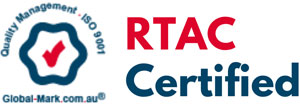3 A's of Fertility - Age, Antral follicle count and AMH
12 May 2021
Dr Lim Lei Jun, Fertility Specialist
Women are born with all the eggs that they will ever have. In fact, by the time a female infant is born, still many years from reproductive potential, the number of eggs in her ovaries has already declined by 80% from the peak number of eggs. The number gets even smaller by the time a girl enters puberty and begins to menstruate.
When a woman is trying to conceive, it helps to have regular ovulatory cycles that produces good quality eggs. How does age affect fertility in both men and women, especially that of the women?
Firstly, as women age, the pool of eggs gets smaller and smaller, making it less likely for ovulation to occur regularly, which will lead to irregular cycles and ultimately menopause. Secondly, the process of meiosis (division of reproductive cells) is more prone to errors while we age. This results in lesser quality eggs which is also the reason why older women have higher risk of having a baby with chromosomal abnormality.
To put this into perspective, women’s fertility starts to decline from age of 30, and drops more steeply after the age of 35. This is because women are born with a finite number of eggs, and as she grows older so does the eggs, both in quantity and quality. Most women will be able to conceive naturally and give birth to a healthy baby if they get pregnant by 35.
After 35, the proportion who experience infertility, miscarriage or a problem with the baby increases. Therefore, from a pure biological perspective, it is best to try to start a family before you are 35. On the other hand, men can remain fertile for much longer than women. Even though male fertility also declines with age, it tends to happen more gradually.
The 3 A's of Fertility: Age, AFC, AMH
When a woman attends a fertility consultation, the fertility specialist will use the ‘3As’ to give an idea of the size of cohort of follicles.
1. Age
A women’s chronological age alone is a good marker of ovarian reserve. The older the woman is, she will have lower number of eggs, and lower quality eggs. However, some women will experience a natural decline in their natural fertility earlier than their age average, while some older women may have ovarian function that is better than their age average. Therefore, other tests used in conjunction with chronological age can be useful.
2. Antral Follicular Count (AFC)
Antral follicles are resting follicles within the ovaries. A women’s eggs (within the follicles) undergo a long process of development before they become the dominant follicle, which is released during ovulation. Antral follicles are eggs at their last stage of development before they are ovulated. To asses your AFC, your doctor will perform a transvaginal ultrasound to assess all 2-10mm size follicles on each ovary, ideally done on Day 2 to 5 of your menstrual cycle.
It’s easy to perform, inexpensive, and gives a good indication of your fertility prognosis. Antral follicle count (AFC) of less than 5 each side indicates diminished egg reserve.
The 3As of Fertility: Age, Antral Follicle Count (AFC) an Anti-Mullerian Hormone (AMH)3. Anti-Mullerian Hormone (AMH)
Anti-Mullerian Hormone (AMH) is a hormone produced by cells in the developing follicles ( sac containing eggs). It is an emerging marker to determine ovarian reserve and is now the most promising test which can be performed via a simple blood test.
It works hand in hand with the 2-A's above, as AMH concentration decreases with women’s age and correlates well with AFC.
AMH plateaus at 20-25 year old, and gradually declines thereafter, it becomes undetectable around menopause. The increase or decrease in AMH indicates other pathology which will be covered in another article.
There you have it, the 3As of Fertility: Age, Antral Follicle Count (AFC) and Anti-Mullerian Hormone (AMH). If you’re having some troubles conceiving, please consult a fertility specialist soonest.
There are a variety of options available to women experiencing age-related fertility difficulties – we will guide and advise you as you search for what suits you best.
What ever your age or stage we are here to help - you can talk through the tests available and results with one of our specialists here.


